On the evening of December 10, 2015, experts from law firms across the region gathered in Prague for an exclusive and select invitation-only Round Table conversation on business and political realities across CEE, the changing nature of CEE legal markets and increased visibility of regional law firms, and much more.
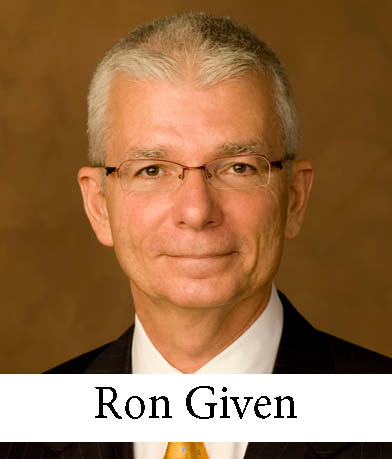
The first part of the Round Table conversation focused on political developments and investment opportunities across the region.
CEELM: Let’s start with good news. Many reports say that the region is starting to recover. Are you all seeing that?
Agnieszka Dziegielewska-Jonczyk: I’m less optimistic for Poland. Because of the recent elections we have a new government that is very right wing and populist. They’ve only been around for a couple of weeks now, so let’s see. But they are not known for loving business and foreign investors, so it’s difficult to be too optimistic. We’re cautious at the moment.
Ron Given: In general for Wolf Theiss – which has 13 offices across the region – this was a better year. Maybe Albania was a bit slow. But in Warsaw – where I’ve been for a bit longer than 7 months – the election is getting a lot of questions; every client has a lot of questions. Questions come up in transactions whether this change is going to generate a tax audit or something. It’s the Peace and Justice party. I must say that the Polish market looks good to me. My last posting was Kyiv so my colleagues in Vienna tease me that, after that, everything else looks good to me! But it makes you wonder, why would anyone mess with the good thing that Poland has going for it?
Denise Hamer: Wasn’t that party in office in 2011? It used to be quite vibrant, before everything took off. Why would they make drastic changes?
Agnieska Dziegielewska-Jonczyk: They were the ruling party in 2005-2007. Now, they’re going to make changes in public offices. I work for a company that delivers services in the public sector – we see public sector clients starting to be cautious, and the people who are coming in have a different vision. And the government is populist. They made a lot of social promises in the course of elections, so they have no money for I.T. now – but for other targets. So the priorities are different now. Maybe it won’t be permanent, but we’ll have to see. I hope you’re right.
Panagiotis Drakopoulos (smiling): That sounds like Greece.
Ron Given: In general, this year, for Wolf Theiss, the lawyers are happier, firm-wide. Of course, I don’t think lawyers are ever ecstatic. And let’s face it, there are many things going on in the world that can be disruptive. Still, my assessment is that it is generally a happier group of lawyers than when we sat here last year. I’m generally optimistic.
CEELM: What about Ukraine, Vladimir?
Vladimir Sayenko: I’m more optimistic than anyone else at the table. Ukraine is in such a deep hole that there’s no other way but up. I think that’s the general attitude that we can see beginning to dominate in the country.

CEELM: Are you seeing a turnaround?
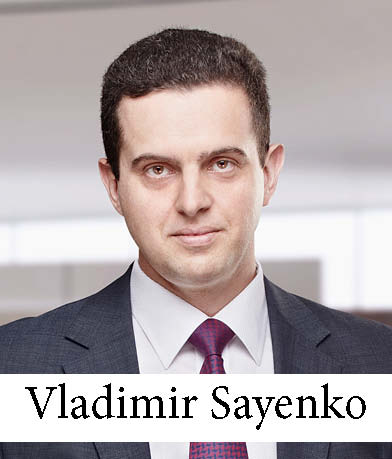
Vladimir Sayenko: Well, we’re definitely seeing stability. Micro-economic stability. If you want to compare average salaries – which in Ukraine are 2 times lower than anywhere else in Europe – that’s the result of the devaluation of the currency three times. All of that inevitably changes the market. There are many local businesses who used to import from China for example, but they say, “well, now it no longer makes sense to import from China – it’s now cheaper to produce it ourselves.” The multi-nationals are still scared, but the locals think “ok, excellent, it’s a good time to develop and build something up.” So you see real opportunities in niche areas. For example, one small online electronic retailer is claiming to have built an empire in 2 years that now sells more than 10 times what the retail outlets do.
Ron Given: Is corruption being tackled?
Vladimir Sayenko: Corruption is perhaps even a bigger enemy than Russians, because it’s internal and more difficult to deal with. A lot has been done to address this problem, and a lot of interesting initiatives are being implemented. The biggest challenge is judicial reform. Salaries of judges remain very low. There is no trust in the court system because those judges who were spoiled by bribes will be tempted by suitcases of cash no matter how reasonable their salary will be, so the only solution is to get rid of the old judges. Despite the wish of the society to see incompetent and corrupt members of the judiciary removed from office, only several hundred judges out of about 9,000 have been dismissed. It is impossible to dismiss the majority of the old judges at once because replacements cannot be trained quickly. Another problem is that after so many years of corruption, even if blunt bribery disappears, do you believe that nobody will be able to play golf with a judge? There has to be criminal prosecution for litigants to make any unofficial contact with a judge about the subject matter of a case.
Simon Cox: Is the country divided now?
Vladimir Sayenko: The rule of law in the East of Ukraine is like the Wild West: Whoever is stronger wins. There are parts of the territory that are not controlled by the government. If you look at the territory it’s only about 3% of the country that’s not controlled by the government – but if you look at population, it’s a couple of million. There is no rule of law there, there is no government there.
The only distinction we can see is with the border with Russia – where Russian troops control the territory. That territory is legally called “occupied territory.” There is less and less activity with those regions. Recently supplies of electricity have been stopped to the Crimean Peninsula. The situation in Donetsk is more controversial because Russia is not claiming that territory. They say “it’s not us.” So people living in those areas can still get all the benefits.
Panagiotis Drakopoulos: I wanted to ask Vladimir if he sees any movement or any activity in Ukraine from aggressive investors – the kind that take on high risks.
Vladimir Sayenko: Absolutely. Most of them still have some roots or better understanding of the realities, and that’s why they’re willing to take the risk. Most of them are not foreign, although players like Horizon Capital – perhaps the largest private equity player in the country – they’re still there, they’re buying things. They’ve been in the country for ages. There are some players like that, but most of the activity arises from local businessmen who see an opportunity. You can buy assets that used to be for half a billion, for maybe 10 million. That’s a nice discount.

Panagiotis Drakopoulos: So it’s still local or regional investors that feel more comfortable with the country?
Vladimir Sayenko: I think that’s fair to say, but we also see a lot of what we would call deferred or potential interest, from investors coming to look. But so far the economics don’t justify the risk. They expect to make 30/40% ROI for the year, which is a bit more than the country can do at the moment.
CEELM: Turning to Greece, Panagiotis, we haven’t heard any news from that country for a while. Is that a good sign?
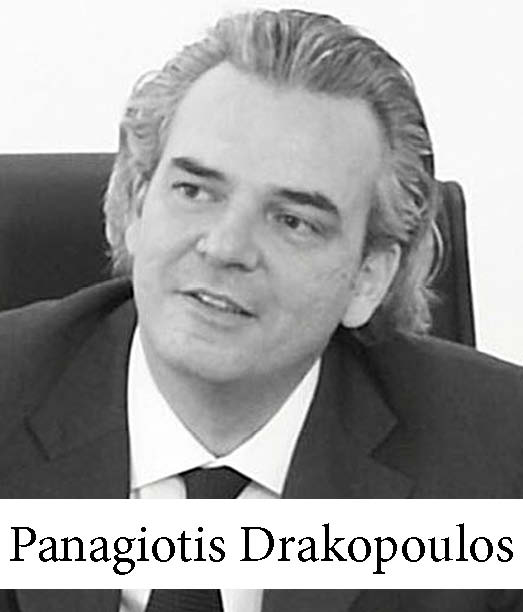
Panagiotis Drakopoulos: The fact that you don’t hear any news on Greece is not a good thing, because it means that not a lot is actually happening. That means that negative situations pile up, and they will explode down the road. Similar to the Polish story, the government is super-populist, they got elected on promises they can’t deliver. I wouldn’t say that we have political stability as such because in effect there’s no strong opposition to rally the people against the government. But inactivity in itself creates uncertainty. Nothing is being done. No deals. Everybody is sitting around waiting to see what will happen. And if you don’t act towards fixing things, probably what will happen down the road won’t be anything positive.
What the Greek economy and markets need is a stronger shock. We’ve been sinking into the hole little by little over the years, and didn’t get the shock that would change the attitude of the government.
CEELM: What kind of shock are you speaking about?
Panagiotis Drakopoulos: I think the results of continued austerity will eventually create a shock in the economy. Greeks find it difficult to move from a personal agenda to a national agenda. This is a mentality issue. We are nothing like Japan – or Germany, for that matter. We are exactly the opposite. So in order to move to a national agenda, to think about collective growth, things have to get worse, in order for Greeks to realize that serving the common interest actually serves their personal interests as well.
For example, we were advising a US fund to buy an NPL portfolio from a Greek bank. They were used to paying 10 cents on the dollar. Because it’s Greece, they offered something ludicrous by their standards, like 60 cents on the dollar, just to set foot in the country. And the bank said, “ah, no we want 85” or something along those lines. So the fund said, “ok, we’ll come back when you grow up.” This means the shock isn’t there, because the managers of the bank were thinking more of their personal agenda. Not so much of their bonuses, but they were afraid that they could be prosecuted for making a deal that was not “in the interest of the bank and the Greek people”, rather than being interested in making a sound business deal. These are things that have to be ironed out. And unfortunately it’s only if things get worse that this will happen, because if things get a little better, everything will be covered up, and the problems will still be there.
CEELM: So are you hoping things will get worse? That’s a strange situation to be in.
Panagiotis Drakopoulos: From a philosophical point of view, yes. But if you are objective, this is what is needed. I mean, things need to get actually get worse in order for the real issues to come out in the open and force Greeks to deal with them collectively as a nation.
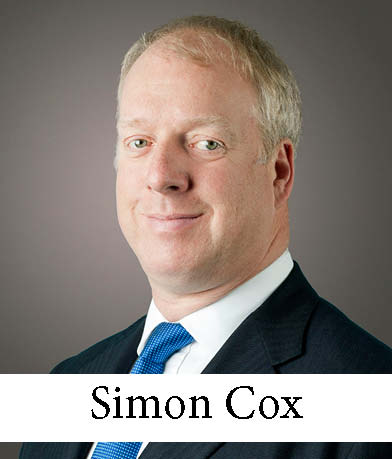
Simon Cox: You put your finger on the main issue. I’ve seen it in other countries as well. It’s better as a civil servant to do nothing, because you can’t really be criticized for it, because you haven’t really done anything, than to take an aggressive position for the country, which allows you to be criticized by the next government for selling cheap, when the market was the market.
I’ve come across other examples with Greek banks where they have assets, and they should sell those assets, because they’re not increasing in value, they’re withering away and people are leaving, and no one within the Greek organization is taking an aggressive and positive position, because they might get criticized, so in a way the decision needs to be taken away from those people, and put in the hands of some kind of entity, so things can move on. Because you’re right, there are a lot of deals that are sort of built up in Greece that just aren’t happening.
Dan Matthews: So what’s the answer – to pull out of the euro and suffer the consequences and go from there?
Panagiotis Drakopoulos: I’m not sure. These are over-simplistic suggestions: let’s get out of the euro, let’s stay in the euro. It’s very difficult to say what needs to be done. Now Greece is negotiating with the EU for refinancing, and on all the matters that are thorny and are not popular, we say, “we’ll see.” We leave them. We don’t touch them. And this is exactly the opposite of what we need. Someone should take charge and make things happen by tackling the issues head on.
Denise Hamer: Is this paralysis freezing assets outside of the Greek market as well?
Panagiotis Drakopoulos: No, they seem to have a mandate to sell everything outside Greece.
Simon Cox: The decisions are made in Athens, so the paralysis is in Athens, not at a local level.
Panagiotis Drakopoulos: It’s amazing how foreign investors really like Greece and want to invest in Greece, as a concept. The moment they see a little less of a disaster they say, “oh, can we come?” And Greeks shoot themselves in the foot by making it virtually impossible for a viable Greek case of FDI to advance.
CEELM: Do all of you do work in Greece?
Denise Hamer: Through back doors. Through Romania and Bulgaria, we’ve been looking at a lot of non-core assets for our clients to acquire. Obviously all decisions are taken in Athens, but there seems to be a little less paralysis outside of Greece – out of sight, out of mind, maybe. I’m not quite sure what the rationale is, but there seems to be some movement outside of Athens.
Ron Given: It’s the same for us – via Romania and Bulgaria.
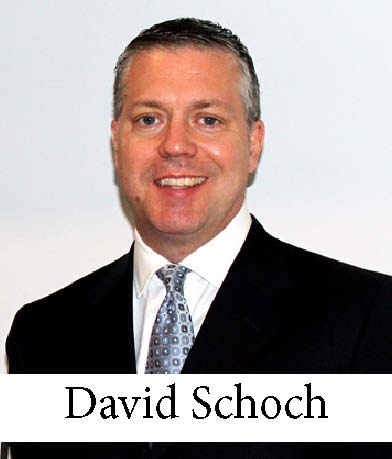
CEELM: We have two investors at the table. From your perspective, how does the existence of a populist government in power affect your decisions?
David Schoch: I would say it’s a double-edged sword – particularly in the case of Serbia, where I’ve worked for many years. I think most of us would agree that Serbia’s better off having a consolidation of power. Even if the consolidation is by someone that’s a little bit unsavory. You hunch your shoulders and say that consolidation of power at least allows you to make decisions, and frankly, particularly in Serbia, people still respond to the iron fist. So consolidation of power there is a good thing. The flip side of that is, Serbia today is being run with a small group of people making all the key decisions
I was talking to investors in Brno yesterday who are really looking at opportunities in Serbia and they are almost scared to death. I moved to Prague in 1994 and I saw how foreign investors were perceiving the Czech Republic and Slovakia. They would come and ask ridiculous questions. “Is there running water?”, and “is there electricity?” Just stupid.
And for the first time I’m experiencing the same thing when Central European investors are looking at Southeastern Europe, and asking some very basic questions, out of fear. It’s availability bias. The nonsense you see in the press, just as it was in the 90s. It wasn’t really an accurate reflection of what was going on down there. They’re seeing what’s happening in the headlines, and saying, “well, this guy lost his construction project for this wind project, and this is the way all deals are happening, and you invest your EUR 200 million and they come and take your permit away – that’s how every deal goes.” It’s gotten to the point where they asked me yesterday, “if you get audited financial statements from the Big 4 auditors, are those going to be accurate?” Of course they’re going to be accurate!
So I think the populist narrative is a necessary evil given where Serbia is today, and so as an investor I see it as a positive. I think it’s probably more positive than negative, but I have to admit it’s making me consider what people are asking me about certain deals – whether this one or that one is too close to the government, for instance. So it’s making me think about different sectors, and there’s some stuff I’d probably stay clear of.
CEELM: Dan, we were speaking earlier about the potentially beneficial affect on business of a stabilizing election, regardless of the particular politics involved, in the context of Turkey.
Dan Matthews: I think the consensus in the country is that [current President Recep Tayyip] Erdogan’s ability to achieve a parliamentary majority at least for the next two years has re-injected political stability into the system, so that people are willing to move forward with their investments. There may be political issues coming up in 2017 and beyond, including constitutional changes that are expected to be proposed, that may have a negative effect, but right now everyone’s feeling relieved and moving forward. Transactions are coming back to life.

CEELM: Two or three years ago Turkey was all anyone was talking about, but the last few years have been slower and beset by political instability. Is there is a sense that the market will be reset back to where it was several years ago, or is that too optimistic?
Dan Matthews: No, that’s too optimistic. The growth rate was 9-10% in 2010/2011, and now it’s down to about 3%. The re-election of the AKP is an indicator that it will not go lower, but no one’s expecting the number to bounce up quickly because of the election. We’ll have to see what happens after 2017. The only good geopolitical development for Turkey is that the price of oil is now so low that the current account deficit is starting to shrink because energy is now so cheap.
But most everything else is bad, with Syria, Russia. It just seems like everyday we’re getting hit again with more bad news.
Ron Given: How bad will the current Russian situation with Turkey be, economically?
Dan Matthews: Economically, people don’t seem so concerned yet. The biggest concern is expressed in the tourist industry down along the southern coast, but many are saying “we’re going into winter now, when Russian tourists don’t come anyway, and we think the dispute between Russia and Turkey will be worked out by next June.” When you talk to investors, they don’t seem that terribly concerned.
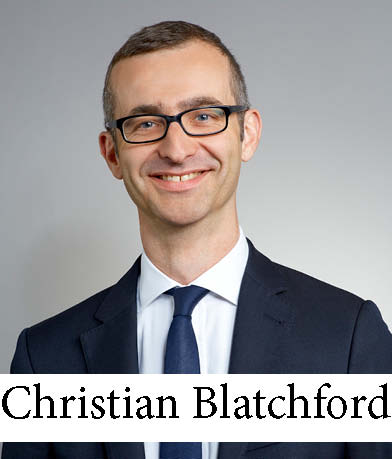
Christian Blatchford: Can I say something about this region, because hearing about radically bad or radically good governments, here in the Czech Republic there are no radical governments. They’re all pretty much the same. They’re usually sort of non-political and technocratic governments, and they come and go and nobody really notices. They all have the same agenda: a bit of populism, a little bit of their own business, and a little bit of incompetence … but despite that things seem to function pretty well. This year was amazing in terms of M&A deals – the standard thing of up to EUR 20 million deals to hundreds of millions of euros, or even higher. But it’s a small place, and all it takes is to put a “for sale” sign up for the Chinese and they come in and buy a brewery, or a football team, or an airline, or whatever. And all of a sudden the law firms have a lot to do.
Patricia Gannon: And there’s no problem with Chinese coming into the market? They’re welcome here?
Christian Blatchford: They’re welcomed by the current government and some people close to the current government. I don’t think there’s adverse public opinion, but if that beer starts tasting worse, or that football team starts losing, then maybe there will be.
CEELM: Last year the subject of Chinese investment was raised, and it was considered that maybe it was perhaps more theoretical than actual, with the exception of a few specific deals. But what about this year? Are you all seeing more Chinese investment?
Patricia Gannon: We’ve seen some on the power plants and the infrastructure side and the large state-owned companies, but we haven’t seen anything beyond that. We’ve heard in Croatia and maybe in Slovenia there’s interest in boutique vineyards and hotels, but that’s about it. Certainly not the vast hordes we were expecting. That was the view on the ground, that there was going to be the great invasion, but we haven’t seen it.
Dan Matthews: They’re very active in Turkey. ICBC bought a Turkish bank recently and now there are rumors swirling in the market that another Chinese bank may be coming in. We’re expecting a lot of Chinese activity in 2016.
Panagiotis Drakopoulos: In Greece, not so much, apart from what’s already there – mainly, the Piraeus port. For a while, there were problems with the refugees, and the northern border was blocked, and HP had to reroute containers, bypassing Greece. Greece needs to be smart in order to balance pressure coming from the Chinese with the different interests within the EU.
Ron Given: There is real Chinese activity I think in Poland. They had some bad luck in early infrastructure deals, but they’re looking around again, and there’s more normal deals, and CEE Equity Partners is there – a fund active in all areas, but which really started in Warsaw, and does a lot of wind deals and other things.
Uros Ilic: There are a few attempts in Slovenia as well – in Maribor, for instance – from China. I actually went to Shanghai recently, and there was a big delegation coming to Luka Koper, the biggest port in the Adriatic, maybe 200 of them. We saw them for two hours, and for the rest of two days, they were chilling out in the vineyards. So that investment didn’t happen. The main reason was that they were pushing for the China Development Bank to finance that and their rate was double the interest rate we could get from Europe. So economically, financially, it was just not possible. And they were not just able to build it without them financing it.
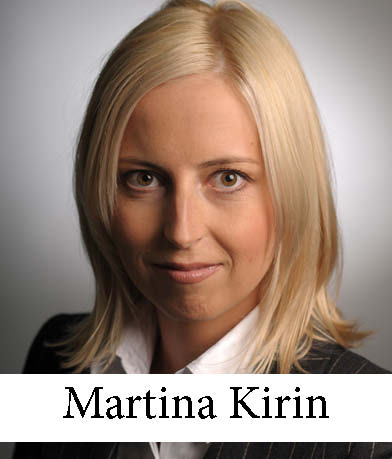
CEELM: Martina, turning to you, has the Czech Republic been as good to you this year as was to Christian’s business?
Martina Kirin: Well, as a private investor and in private equity, we’ve been really busy, because as Christian mentioned we’ve had a lot of Chinese investments here in the Czech Republic. So we were running many transactions. We closed many of them and are looking at new ones. So for private equity it was a very successful year, and next year should be as well.
CEELM: Several of you have said that Albania is noticeably not sharing in the general recovery. Why is that?
Panagiotis Drakopoulos: I think again it’s a matter of political will. Christian spoke before about governments not being involved and being technocratic, this is the best for business and the economy – when governments don’t intervene too much and don’t put themselves in the spotlight when it comes to business.
Christian Blatchford: True, but with an important qualification. You’ve got to have political will for things like infrastructure projects, otherwise they just sit and stagnate. And since we’ve got maybe the seventh transport minister in five years, that will in the Czech Republic has been lacking and the whole construction market is depressed – there’s just nothing going on.
Panagiotis Drakopoulos: Continuity means there’s no disruption in business, which is a big problem in our countries. Someone told me once of being asked at a conference why the Swiss were doing so well. He asked, “who’s the Prime Minister of Switzerland?” When the audience didn’t know, he said, “that’s why.” I think that says a lot.
So in Albania there was a change in the government several years ago. I’m not saying there was perfect rule of law before, or that there was absolutely no corruption during the previous regime, but there’s super inactivity with the new government. Everything has stopped, everything is at a stand-still. The agenda seems to be predominantly focused on re-election – so again you have a personal agenda, rather than a national one. And a country that had the strongest growing economy in the region ten years ago, with 6% or 7% or 8% growth every year, ended up in a downward spiral because nothing happens. Again, this is a country with great potential, miles of uninterrupted seashore, near Italy, etc. But if there is nothing moving, you cannot expect growth, and there is little certainty for foreign investors to come to Albania – even less than before.
CEELM: Patricia, I know your firm is strong in the former Yugoslavia and the Balkans. How are things going for you in Bosnia or Croatia, for instance?
Patricia Gannon: Well, Bosnia is not doing too well to be honest. It’s dysfunctional and very difficult to do business there with the entities and local power organized as it is. We’re in both parts of the state with offices in Sarajevo and Banja Luka, so we’ve managed to balance it out a bit. We’ve not grown in size last year, but we’ve done some interesting deals, mainly in the Federation, while the year before it was mainly in Republika Srpska, so it depends very much from year to year, depending on the type of investor that comes in. So we’re maintaining our position, but not growing much.
Croatia is growing nicely, but the big hit for us in terms of expansion is Slovenia this year. We opened our office there about 10 months ago, and it’s a hot market – probably hotter than any other market we work in right now and we have a great team so its doing better than expected.
Denise Hamer: What sort of matters are you working on in Bosnia and Serbia and Kosovo?
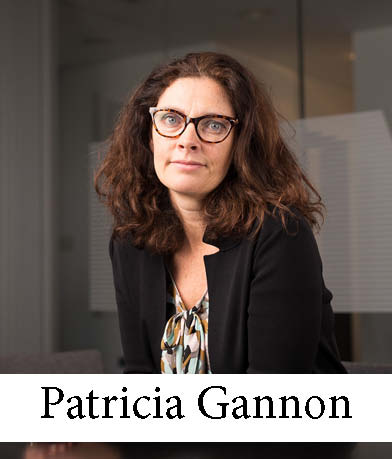
Patricia Gannon: In Serbia last year we worked on Mid-Europa’s acquisition of SBB, and SBB consolidated the cable market in Bosnia, so that meant another 20 perimeter acquisitions, so that kept us busy in the Federation. Last year we worked on the financing of a thermal power plant in Srpska. They’re not mega markets, to be honest, and I don’t see them growing very fast, given the instability, but when you have not a huge amount of competition, and you do have clients interested, it’s clearly an opportunity for a regionally integrated firm like ours. What we do see across the board is a huge amount of regulatory work. There’s not a day goes by that we’re not asked to do regulatory work for multiple markets. It may not be high value transactions but it’s bread and butter, and for local markets like ours that’s good, stable work.
In Kosovo we’ve seen privatizations, we’ve seen large RE investments, we’ve seen disputes between companies from Serbia going into the local courts. We’ve been welcomed there, from the political side, the bar association, other lawyers; because there are so few practitioners down there it legitimizes the market when you’ve got reputable practitioners coming into it. It’s still early stage of rule of law, and in every sense, and I think the opportunities are still limited, so it’s not without risk, but I don’t think there’s a market here today that doesn’t have risks of various sorts. It’s about finding the clients who are comfortable with that.
Simon Cox: The global markets are experiencing a downturn in raw materials, and the mining sector’s been massively hit globally, and the kind of deals I’ve come across in Bosnia in the steel and mining sector, and coal in Kosovo … if the super-cycle was still going up, there would be more interest from foreign investors. I think it’s a bad time for these markets, where we are in the global raw materials sector, but it might pick up in the future.
CEELM: Denise, you’ve traditionally done a lot of work in Slovenia. Is that country hot for your practice as well?
Denise Hamer: I think it’s been an interesting story in Slovenia. I’ve been there since 2008, and what we’ve seen is a big restructuring story that’s now turned into a big M&A story. We’re now seeing interesting sale deals. The last big restructuring was Lasko, which just wrapped up nicely. Now seeing some good sales. Not that interesting for me personally, as I work on the distressed side, but it is on the investment side. The downside is that we’ve now had two hung deals in Slovenia. The National Bank put two portfolios on the market – one based in Switzerland, oddly enough, which was a sale, and now Project Pine is on life support, so we’ll see how that goes. What’s interesting in the market, and what I see across the entire region is bank consolidation, and that’s kind of my area of interest. A lot of banks are selling off non-core assets, and all of the central banks in the region – Romania, Hungary, etc. – are working towards a sort of Canadian model of three-four sustainable integrated banks, rather than a bank for every man, woman, and child, and I think that’s creating some opportunities for investors in financial products, and, of course, also for lawyers, so that’s quite interesting.
Simon Cox: Are these champions identifiable – have they been named in these markets – or is it just survival of the fittest?
Denise Hamer: It’s very Darwinian. In Romania, the group banks are selling off their non-core assets, so there’s going to be some interesting M&A stories that way.
CEELM: Several of you have mentioned Consolidation as a recurring theme across the region. Why is that happening? Are Competition authorities more willing to condone it now than they were previously?
Ron Given: I don’t think it’s the Competition authorities. Investors are getting more comfortable with the market, so there’s money coming in to take advantage of the opportunity.
Panagiotis Drakopoulos: Competition authorities can be an issue in Romania. With Romania having a somewhat “shallow” legal culture, as there were no private lawyers at all in the country some decades ago, the notions of competition and concentration and how anti-trust legislation works are very new, and may prove at times difficult even for the Competition Council to grasp entirely. Also there is a tradition that favors very much the letter of the law rather than the will of the parties, which creates a problem on top of a problem. So we’ve seen some big fines, because of course in the letter of the law you have a percentage prescribed on turnover, so fines are sometimes applied just like that (snaps). You see these big fines in the pharma industry, FMCG, and retail chains, for instance. There is a lot of uneasiness and a lot of apprehension in this respect amongst bigger players.
And the problem is there’s not a lot of specialized counsel. Even if you find experienced legal counsel for Competition, there can be members of the Competition Counsel itself who may not be experienced enough. You essentially may have to “educate” the ones who will rule in the end, and they’re not always receptive to taking advice from the counsel that appears before them.

CEELM: Simon, you have an interesting perspective on the region because you’re based outside of it, in London. What are the main markets here, from your perspective?
Simon Cox: I think what we’re seeing at the moment from London is that the big privatization wave has finished, there’s a massive consolidation and retrenchment in the financial sector – Turkey has seen a lot of banks for sale, the insurance industry has seen a lot of sales there as well. The markets have to consolidate, because there’s not enough business for so many small banks. We talked about the NPL market. We’re still doing NPL deals in the UK – it’s not going to stop at the end of 2015. The NPL train is going to carry on for several years to come, I suspect. People had a lot of hope for CEE over the years, and I think it’s still there, but obviously it always gets knocked back, and people look at other markets, like Africa – a lot of people look at Africa rather than Central and Eastern Europe.
Patricia Gannon: I think the challenge is that our markets are just too small, and the returns are too small at the moment. There’s loads of money in the world – the world is full of cash – but it’s just too complex and cumbersome doing the deals in our markets, so what we saw in particular is consolidation of businesses, cross-border, at least in the former Yugoslavia, absolutely makes sense. Each of those markets are too small on their own, but put them together in a decent business, with a private equity buyer, you can flip that for very nice money, which we saw with the Mid Europa story.
In the second part of our conversation, we turned to the subjects of law firm management and the changing nature of CEE’s legal markets.
CEELM: There have, this year, been a lot of changes in your markets, especially in the form of international firms pulling out. What do you attribute this to?
Simon Cox: What I’m seeing is a gradual retrenchment of international law firms. Traditionally it’s been the London firms and the US firms rushing into Europe from the early 90s through the last decade. They’ve settled down, so there are some exceptions, but there is a massive retrenchment. Some offices have been spun off, and local firms like Wolf Theiss and Patricia’s firm and others have grown locally and there’s now a grown local market of regional firms and national/transnational firms, whereas the international firms have pulled back.
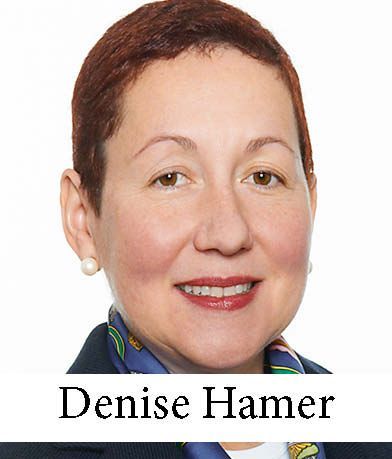
Denise Hamer: I think there are two factors at work here, if you’re talking about why law firms are retrenching and what’s happening in the market. One is that the markets have become quite a bit more sophisticated, so you no longer have to have so many boots on the ground. For instance, White & Case was doing the Istrabenz stuff out of Budapest. So you have a lot of local people who can support you, and you don’t have to have an office in every port. And the clients feel confident that if you have somebody who’s Slovene sitting in Vienna they can still take a plane down to Ljubljana, you don’t have to invest in an entire office there. So that’s one aspect of it. So what you’re finding now – like the DLA model – is that you have some key offices in some key locations where it’s very efficient to have these offices.
The deals are still big – I mean, they’re not big compared to Anglo-American markets, but for the region they’re quite large – it’s just that the nature of the deals has changed. I think we’re moving away from the sort of huge energy infrastructure type deals to more financial assets corporate deals and so on. But there’s still quite a lot of buzz going on.
There are a lot of animals like me now, working out of more than one office, and traveling a great deal. We had our CEE meeting two or three weeks ago in Vienna, where all the partners came from all of the offices in the region, and we decided to put all issues about territoriality, and nationality – who is treading in other people’s territory – aside, and really start focusing on sector-type practices. Regional sector practices. It really works quite well when you have a ring with some very strong offices.
We have Warsaw, Budapest, Bucharest, Vienna, the Czech Republic, and Slovakia, so we have the gateway cities covered, and as a matter of efficiency it makes more sense to have very strong lawyers in these offices who are capable of doing the work in other offices as well. If you spread yourself too much you don’t always get the same consistency and quality (because we can’t all be derivative experts everyplace, for instance). That’s how it works. And I think it’s a very clever and efficient/strategic move. And by no means does it mean we are leaving the region. In fact, all of you, watch out, because we’re in this region seriously. (smiles).
Dan Matthews: More than anything, this is a function of the economics of law practice and the pressure to increase the profits per partner every year. You can’t have offices in all these small markets and expect that every equity partner is going to generate a profit for himself or herself of USD 1.5 million (or whatever that firm’s target is). I think Linklaters was ahead of the curve when they spun off the Kinstellar offices. I don’t know if they had unachievable targets or were just looking further down the road, but I think that’s the reality for some big law firms.
CEELM: Uros, are you seeing opportunities for your firms that used to go to international firms, or is that not how you would explain what’s happening?
Uros Ilic: Yes, what Dan said is correct, and the cost pressure is becoming the norm in the region. It started in 2008 with the financial crisis but now, seven years later, it’s still here. There are a lot of pitches we’ve participated in recently where international firms were invited but which were concluded with local or regional firms being instructed due to their lower fee offering. It is impossible for me to understand how a true international firm can have an expat here in the region efficiently in terms of costs. I believe local and regional firms are managing the costs better.
CEELM: Why was that not true ten years ago?
Uros Ilic: I can tell you based on our practice. Ten or perhaps 20 years ago, the concept of law firms did not really exist in SEE countries. The biggest Slovenian firm when I started my career 15 years ago had only three lawyers. So international law firms had this knowledge advantage 15 years ago. But today it is a little bit different. I have the privilege to sit with Denise from DLA Piper, for instance, not just here, but on deals in the region for the past six-seven years, and the differences in knowledge between lawyers are getting smaller and smaller, while on the other side local connections that help in executing deals are of course stronger. And with all respect to what has been said [about being able to travel to specific markets from regional hubs], it is still not the same as living in the jurisdiction on a daily basis, with Saturday picnics, visits to the golf course, etc.

CEELM: Ron, what’s your perspective on the phenomenon? Where’s it going?
Ron Given: Of course, my perspective these days is very much a Warsaw perspective. That’s what I know best at the moment. However, I think all of the Wolf Theiss markets will continue to be tougher and tougher for international firms to work in. Some of this is natural, some of it is due to a greater sophistication of clients. But the internationals also have a basic organizational issue. It reminds me of the Chinese expression of “sleeping in the same bed and dreaming different dreams.” Many Warsaw lawyers from the internationals tell me of their frustration at sitting down with colleagues from London or New York or wherever and just not connecting. They say, “there’s no common frame of reference.” At Wolf Theiss it’s a little easier for us to sit down and relate to one another because our frame of reference is Vienna and Eastern Europe. I have no doubt that international law firms will continue to look for high margin and interesting ways to get into our markets. But it will be different than it was in the past.
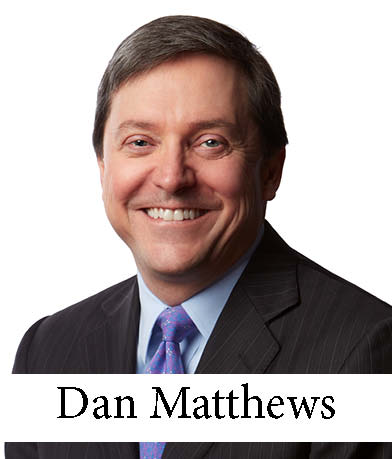
CEELM: Is there a significant difference on fee flexibility and costs that local firms are able to work on a lower margin?
Dan Matthews: I don’t know what local firms can do profitably, but I know what they put in their proposals. (laughs). But, yes, we have to react to price pressure like everyone else. In Istanbul, for four years we haven’t raised our headline rates. At all. And we’re not proposing to do it next year, and I’ll doubt we’ll do it the year after that. So we have to find other ways to make ourselves efficient.
Vladimir Sayenko: We’ve lost opportunities to Baker and DLA in Ukraine on price.
Dan Matthews: Put that in the transcript! (general laughter)
Simon Cox: The DLAs, the Baker & McKenzies, the Norton Roses, the internationals, many of them are creating Swiss Vereins – lots of little profit pools across the globe. With that model, you can bolt on a Turkish office to it, use the brand, and let them run their own economics.
Ron Given: That’s what Dentons is doing in the region and it seems to give them great flexibility, and they’re doing great.
Simon Cox: That’s one model. The other model is the regional grouping. The Kinstellars, the Wolf Theisses, the Karanovic & Nikolices. That sort of regional model. Then you have small local firms that want to be bigger. And sometimes they merge into an international firm. But the problem there is the rates, of course, but also the lack of referral work. You don’t get as much referral work from one firm as much as you used to get from your international friends. So there are different ways to go. Internationals, getting larger. Or stay and do the boutique, like Slaughter & May, or Paksoy, in Turkey. That type of firm. Very good at what it does in its own market.
Christian Blatchford: There’s also the genuine independent firm. The advantage is you do a cross-border deal and you can go out and cherry pick the best law firms. But it can take a lot of time and effort putting teams together, and you need to be careful sharing the risk between cooperating firms. The client may ask you to front it.
Denise Hamer: And you can’t cover the liability for that. I’ve been on both sides of it. Here’s another thing you need to consider. Even though we’re sitting here in CEE, there’s a huge UK component, especially in the world of finance, but really in any sizeable transaction. And what I found at [previous positions in the region] is that I was basically sitting on the tarmac waiting for the deals to arrive. They were all structured by lawyers sitting in London, and I would be doing the less interesting end, the due diligence work. You can bill that out for EUR 25 an hour, and still not be the lowest. You go to London and do what Christian referred to as the “friends and family” model, and the problem with that is, you are hugely exposed, there’s no consistency of quality, and …
Christian Blatchford: I disagree on the quality, because you really can go to the best. I’ve seen deals handled by international law firms in which some of the offices were superstars while others were awful. For international law firms, the variety in consistency across jurisdictions can be a problem.
Denise Hamer: That’s interesting. I’ve worked on multi-jurisdictional deals where the quality of work I got from one local office in particular was, and I can’t just pass the client something that’s not integrated. And I don’t get paid for that. I don’t get paid for sitting around correcting typos, and being the only native English speaker on the deal. I think there is no right answer. I think that at the end of the day there are horses for courses, and at the end of the day every deal will demand a different type of a firm. And each law firm will find its niche.
Patricia Gannon: And there’s room for everybody.
Simon Cox: Clients want the lawyers, not the firms. There will be more boutiques set up, and they’ll get business, because their clients will go with them.
Christian Blatchford: I don’t know how this compares to other jurisdictions, but if you don’t just look at inward deals, but also outward deals, it can be more interesting. Sometimes with Czech and Slovak clients we find ourselves doing surprising deals in surprising places. I don’t know the extent to which my colleagues around the table are doing work for local clients in other jurisdictions, but …
Uros lic: Yes, one thing we’ve noticed is the increasing amount of inter-CEE transactions. There’s a new trend in Slovenia connecting Czech, Slovak, and Polish investors with Slovene targets. For example, there are four M&A deals happening in Slovenia as we speak where Polish investors are going to win. A trend that is a complete novelty for our market.
Simon Cox: Was this deal done by a firm with offices in both Poland and Slovenia?
Uros Ilic: No, there’s no firm – except for the two Austrian firms – that would have an office in both Poland and Slovenia. It’s a best friend’s relationships. In our recent case between GESSEL and ODI.
Ron Given: Wolf Theiss looks to transactions like this as a source of growth.
Uros Ilic: So does ODI. This is a new trend. If this goes on, perhaps we will have more than just a few of these. But ten years ago this was absolutely not here. Investments were purely Western.
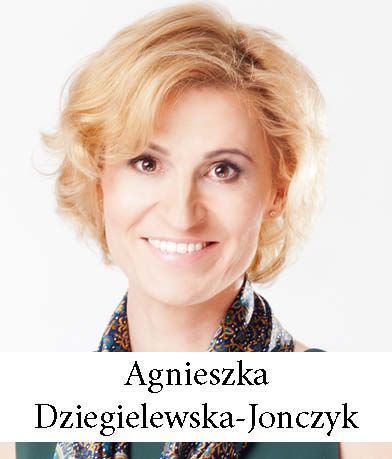
CEELM: Moving to another subject, have any of you seen fees returning to where they were before the crisis?
Agnieszka Dziegielewska-Jonczyk: From my perspective, the market for international law firms is decreasing, and fees are still going down. This is mainly because of the local firms who are getting better and better, and because of the increasing number of boutiques able to deliver excellent legal services. These boutiques are usually started by experienced attorneys coming from international law firms. They are great quality lawyers possessing all the know-how that is required.
So it is not now necessary to pay an international firm for the same service when I can hire a boutique. So that’s the trend. This is just a different market, now. This is not only about small local firms being bigger, but also about new firms emerging. The “old” big local firms that are still there are more comparable with international firms, with similar rates. I think, for me and my in-house colleagues, it does not make a difference whether we work with local or international brands, as both are valued in Poland. However, there are instances where a boutique will not sell, and where an international brand of course is needed.
Martina Kirin: What Agnieszka said applies to the Czech market as well. Actually, when I’m looking for legal services, I pick people I have had good experiences with, so it’s about personal relationships. And of course about the price.
CEELM: Some markets have experienced a large number of young lawyers who find their ways to partnership blocked, so spinning off and opening their own shops. That’s certainly happening in the Czech Republic and in Turkey for instance. How is that is going to affect all these markets down the road?
Christian Blatchford: Maybe this [the Czech] market started sooner than others – the international firms came here earlier than they did in Warsaw, for instance, and I think the trend of boutiques splitting off started earlier here as well. And I think it’s a really difficult problem. Ten years into the process, the well established local firms still have not worked out the answer to the problem. The international firms have found one kind of answer, which is to leave. I would say the regional firms are doing well – they’re offering something different. I wouldn’t say that the regional firms can offer the same name or the same quality as the internationals or the top locals, but they’re certainly making progress.
Uros Ilic: You say it’s a “problem,” but a problem for whom? A problem for clients? The clients are happy.
Christian Blatchford: It’s a problem for us – for the lawyers. It just depends on when the problem hits, because the same problem will hit the boutiques in ten years. How do you grow, and how do you invest in yourself, if you’re constantly being chipped away at by small firms that don’t have to do that yet?
Uros llic: So the consolidation hasn’t started yet in the Czech market.
Christian Blatchford: Who’s going to consolidate? You know what law firms are like. It’s not like buying a new factory.
Uros Ilic: Why is Dentons merging with the China’s Dacheng? The consolidation of the legal market is happening. So why’s it not happening in Poland, the Czech Republic, and Slovakia?
Christian Blatchford: There’s only one firm here big enough to consolidate from above, which is the dominant firm in terms of numbers and pricing. But they won’t, because they’ve grown very quickly on their own. They look like a big glossy machine, but I think they’re experiencing some instability now. I think any change that may happen will not be from the top – bigger firms consolidating – but among the mid-market firms.
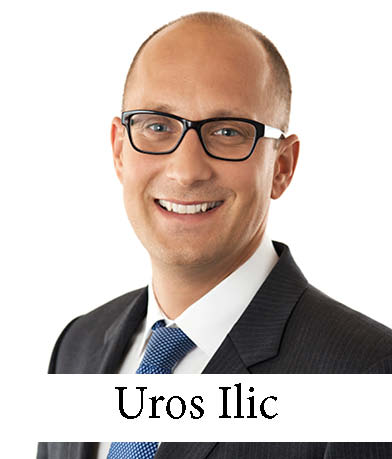
Uros Ilic: But in the legal market industry, there is never only a place for one. For example, I don’t think Karanovic/Nikolic and ODI are really competing with each other in SEE legal market. At least not directly. It’s like the Big Four. They have 66% of the world accounting market, and in every transaction there is room for two, three, or four players. So basically when the market starts consolidating, every leading company in the region needs someone else. Because if a firm’s competitors are doing well, he’s going to sell the same strategy, the same approach, to the client, that they’re trying to sell. So I don’t really believe this is a biblical “there can be only one” situation. When you look at the Magic Circle law firms, it will never end up with only one firm.
On the record, competition is great. (laughter).
Denise Hamer: I have to agree with you, because one of the things you find, and that I’m finding at DLA, which I had not at all considered, is that when you have a Dentons or a DLA or one of these mammoth firms, you almost end up getting to the point where you can’t do any work because you are internally conflicted. It takes me three days to do a conflict check. I mean, it’s ridiculous. It used to be I’d pick up the phone to the guy in the office next door, and I’d say “are you okay with this?”, and he’d say, “yes, I’m ok with this,” and we’d move on. Now it goes through a crazy process and I find myself talking to someone in Oklahoma or some other fly-over state and explaining that some nanobit of my deal somehow touches some nanobit of his deal. So I think there’s a point that the mammoth firms also need to plateau because they can’t own the whole world. And that’s what happened to the Big Four, before.
Dan Matthews: And now they’re back. The whole world’s forgotten, so let’s do it again. (laughs).
CEELM: Ron, it sounds from your essay that you’re seeing the prevalence of alternative fee structures as a positive development. You’re happy to offer those. Is that right?
Ron Given: I think happy in the sense that, if you have to deliver legal services for less money, if you have a success fee, that’s better. It’s been my experience, and generally within Wolf Theiss, that there’s been a greater acceptance of that. I think clients have been really good at getting you to agree that, well, if a deal doesn’t happen, everybody takes a haircut. There now seems to be a greater acceptance now that, really it should also work the other way.
Denise Hamer: I fully agree.
Ron Given: And those success fees are very nice when you get them. And when the deals happen people really are very happy to pay you.
Denise Hamer: And we’re the last professionals in the world to function on an hourly rate. It’s us and the people running a Walmart.

CEELM: How are the fees in your market, Panagiotis? Are they rock bottom?
Panagiotis Drakopoulos: In Greece there are about 100 organized firms (I’m talking about firms of six-seven lawyers and up). Most of these firms are family or friends and family firms. There are a few up-and-coming firms, but generally, from the traditional firms, the top 30, top 20, a lot them used to earn what I call “easy money” – meaning money from the state, money from the banks, from the groups that are somehow interconnected with the state and government-related economy, and the stock market. Since all this has stopped, the pressure is huge. We’ve encountered embarrassing offers from traditional firms, because it’s very difficult in the Greek mentality to say “OK, I don’t have the turnover I used to have, I’m firing half the people, or I’m halving the salaries.” It’s a matter of honor. It’s difficult to adapt. In that sense you have firms with 30-40 lawyers sitting, doing nothing, so when a job comes around for which they would previously offer 50k now they offer 5k. We’ve had cases like that, especially with the latest privatizations.
Patricia Gannon: That’s awful. You can’t survive that. Nobody can survive that.
Panagiotis Drakopoulos: Everybody’s hoping that they will weather the situation somehow. They say “it’s better than zero.” But 5 instead of 50 is like zero – it’s nonsensical. Our firm used to get accounts from clients who were not happy with traditional firms and used a selling line saying “we give you a 20% discount on whatever you were paying before,” just to get a foot in the door. This is a not a good line anymore. (smiles). While a lot of the bigger traditional firms are suffering in the absence of “easy money,” a few smaller ones have closed up shop altogether, with their lawyers moving to join other firms.
Ron Given: Can I just add to my answer a bit. Your real question was, since we’re getting success fees, and enjoy them, does that encourage us to say, “forget about the hourly fee, let’s jump into the success fee.” And I have to say, if you would ask most lawyers that, they’d say, “no, we’re not really there yet.” We still think in terms of the hourly rate. But we’re getting hammered on that, so if we get the occasional success fee, we’ll take it. Martina has said that, really, all her deals are done with a cap. And, thinking about it, I have to say, it’s kind of rare that you don’t do a deal with a cap. So in many ways, we already are in an alternate fee arrangement. We just haven’t come to that realization yet.
Christian Blatchford: If you put any kind of structure into an offer you need to back it up with assumptions. In the past, when the assumptions proved false, you didn’t really want to have that discussion with the client, but I think we’re getting a bit better at that now, because we see that clients can be tough with us. But I admit, even though I’m still reasonably young, I do still see myself in the traditional way as something of a taxi driver. I wouldn’t dream of saying to a taxi driver, “Wanna drive me somewhere for 200 crowns?” and then whizz off to Vienna. It’s got to be bounded. You do get some clients who offer you a minimum of information and then think they can hold you to some ridiculous price.
Panagiotis Drakopoulos: The other problem with a cap is that it kills your P&L, your cost estimates. You don’t know what you make from a case, from a client; everything gets much more complicated.
Uros Ilic: You need to go backwards. This is very easy. At the end of a project, you see what your effort was. You go backwards, and you learn for the second mandate.
Simon Cox: What you also do is you open two files. You open a file for the job you “spec” for, and you open a second file for the extras and the unspecified work. Like a builder. They contract for a specific job, and if you say, “well, do you mind just painting that wall while you’re here,” they’ll charge you extra. Lawyers need to learn to do that more often. They charge the client for work they haven’t actually quoted for, but the client thinks it’s all part of the big job.
Ron Given: That’s interesting. So you physically have two files?
Simon Cox and Patricia Gannon: Yes.
Patricia Gannon: Scope and non-scope. But the point is you have to be very disciplined about going back to the client. We do that all the time. You just need to be able to pick up that phone.
Agnieszka Dziegielewska-Jonczyk: As an in-house counsel, I’m used to this approach.
Patricia Gannon: It’s completely ok to call the client and say, “I’m sorry, that wasn’t in the original scope. I’d love to do that for you, but unfortunately we’ll have to negotiate that separately.” As long you’re reasonable about it, the clients will say yes.
Dan Matthews: This is our standard way of operating.
Agnieszka Dziegielewska-Jonczyk: I’m used to this, and I confirm that, when I’m working, this is standard.
Patricia Gannon: It’s completely fair.
Vladimir Sayenko: You’ve said the word “cap” dozens of times, but nobody’s used the phrase “fixed fee.” Which is what we prefer to do, because we think that fixed fees encourage innovation, whereas caps are 19th century.
Dan Matthews: Fixed fees are harder to sell to the clients. Because they always want that hope that they’ll come out under the cap.
Vladimir Sayenko: We noticed that we can do a lot of tasks if we improve our processes. We can do them more efficiently, and we have quite a few projects where the realization rate is well above the nominal rate for the projects for which we have fixed fees.
Agnieszka Dziegielewska-Jonczyk: This is about terminology. Fixed fees are ok, but estimated fees are something I don’t like. Fixed fees, caps, lump sums, whatever you call it, this is the amount you are going to pay in the end. However, the estimated fee, this is something that rings the bell in my head, because it will most probably be exceeded. And this is a problem for me as we, in-house lawyers, have budgets, which cannot be exceeded. So I cannot give any work to a firm that is unable to tell me what the bill will be. The budget is something I am given for a quarter or a year, so I have to stay within it.
With that, the conversation drew to a close. We want to thank all of this year’s participants for taking the time from their busy scheduled to travel – in many instances great distances – to participate. We look forward to next year’s third End-of-Year Summit!
This article was originally published in the 2015 Special Year-End Issue of the CEE Legal Matters Magazine. If you would like to receive a hard copy of the magazine, you can subscribe here.



